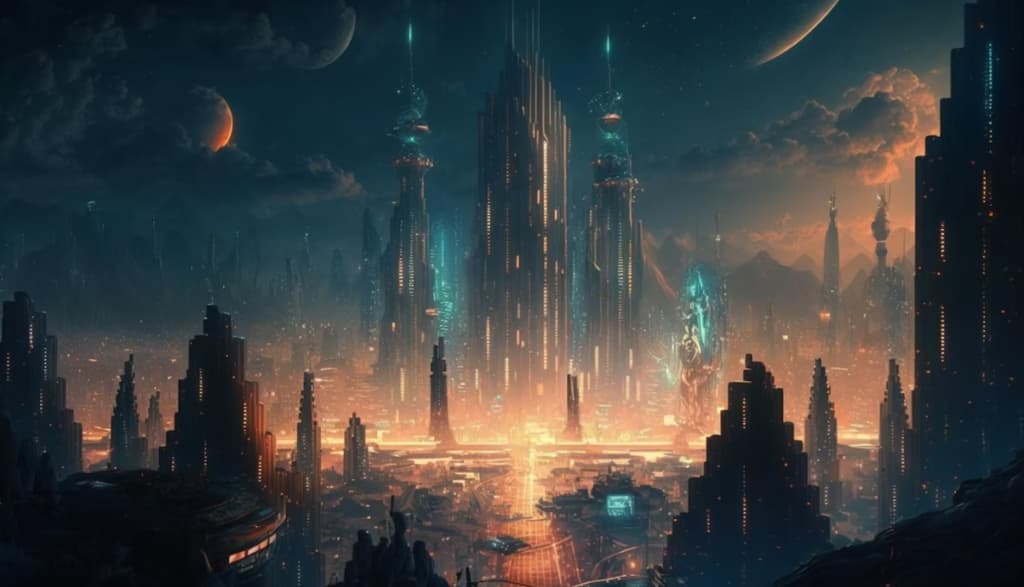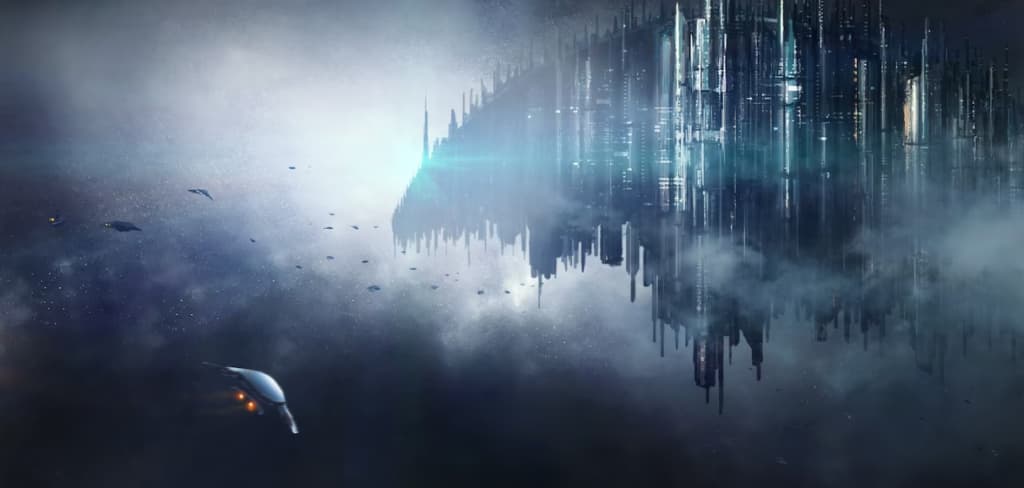2023’s Sci-Fi & Fantasy Offerings by South Asian Authors
Speculative fiction serves not merely as an imaginative escape but rather as a mirror to the true state of affairs. For those within the South Asian spectrum, the genre at times feels disengaging, as it seldom captures the myriad of realities beyond the Western mainstream. Narratives from this region have frequently been scripted by external voices, leading to distorted or overly simplified representations for a global audience.
Change is on the horizon, with a surge of South Asian and diasporic writers reclaiming their stories. Works such as “The Jasmine Throne,” “The City Inside,” “Seven Moons of Maali Almeida,” “Djinn City,” and “Kaikeyi” showcase the rich and inclusive literature emerging in recent years. The year 2023 is shaping up to be a landmark, with an array of remarkable titles from South Asian writers in the Adult Speculative Fiction and Fantasy (SFF) genre. This is a time to acknowledge and celebrate the authors who are introducing compelling, inclusive stories. While there are numerous cherished works by South Asian writers, a select eight stand out for the moment.
Disclaimer: The intent of this article is to honor South Asian authors broadly; however, the majority of adult Speculative Fiction and Fantasy (SFF) books releasing in 2023 feature authors with Indian heritage. It is important to recognize that South Asia encompasses more than India, including Bangladesh, Bhutan, the Maldives, Nepal, Pakistan, Sri Lanka, and Afghanistan. Constraints and biases in publishing currently shape available literature. The reader’s role includes recognizing the full spectrum of the region’s diversity and supporting narratives that encompass it. Progress in representation has been significant, yet the journey towards fully mirroring the region’s multifaceted reality within literature continues. Thus, the following list is not exhaustive or final.
The Saint of Bright Doors by Vajra Chandrasekara
“The Saint of Bright Doors” by Vajra Chandrasekara presents a narrative that diverges from the classic ‘chosen one’ trope. Raised with the destiny to assassinate his Sainted father, the protagonist rejects fate and seeks therapy. Inhabiting a city teeming with others deemed ‘chosen’ and mysterious Bright Doors that harbor secrets, the journey of self-discovery unfolds, promising to alter the world.
- Scheduled for release on July 11, 2023, this novel beckons to those who find solace in the realms of fantasy, offering a fresh take that stands distinct from the standard narrative;
- Chandrasekara’s prose weaves the ethereal with the commonplace, depicting a world where deities garner fandoms and the mystical is ensnared in bureaucracy.
This book invites the reader into its world, sharing inside jokes and whispering secrets, reminiscent of the works of Cat Valente, Alix E. Harrow, Erin Morgenstern, and Susanna Clarke, yet stands unique in its intimate exploration of identity, belonging, and the search for home. Its narrative is surreal and whimsical, brandishing fantasy as if it were a bloodied blade.
For those seeking a thought-provoking dive into fantasy, “The Saint of Bright Doors” offers a rewarding challenge, promising an enriching experience for dedicated Speculative Fiction and Fantasy enthusiasts.
Ten Percent Thief by Lavanya Laksminarayan
“Ten Percent Thief” by Lavanya Laksminarayan unfolds within the confines of Apex City, where a statistical bell curve dictates the fates of its citizens. For those in the top 20%, AI-curated lives of abundance and productivity await. Meanwhile, the bottom 10% languish under severe conditions. Power resides with the elite, who will stop at nothing to maintain their status and suppress those beneath them. However, the dynamics of this stratified society face upheaval through the catalyst of a single, daring heist.
- Set to release on March 28, 2023, this novel marks Lavanya Laksminarayan’s foray into literature as a critique of techno-capitalism cloaked in cyberpunk satire;
- The world constructed within its pages is both a chilling reflection of contemporary society and a plausible future dystopia.
The narrative’s mosaic structure may initially challenge readers to find their footing, but perseverance reveals a world of Laksminarayan’s vivid imagination, from designer babies to the extremes of social media influence. It’s a world designed to captivate and hold fast to the reader’s attention.
The Last Dragoners of Bowbazar by Indra Das

Venturing from the vivid streets of Calcutta to realms that defy expectation, “The Last Dragoners of Bowbazar” ensnares the reader, offering a narrative that is both transporting and deeply humanizing. The tapestry of words spun by Indra Das is exquisite, stirring a desire to trust in the fantastical, to engage with the tangible, and to delve into his richly imagined world.
- This novella, though concise, provides an otherworldly journey;
- The essence is not merely in the plot, which is deliberately left for personal discovery, but in the tender, visceral narrative that resonates deeply, especially touching for those from South Asia grappling with the fluidity of their identity.
Embracing a whimsical hope, there’s a longing for Ru’s happiness in a parallel existence — for them to revel in the freedom of the skies, for Alice to share moments of joy, and for an embrace with their Queen that speaks of safety and love.
The Surviving Sky by Kritika H Rao
“The Surviving Sky” by Kritika H. Rao stands out as a particularly cherished narrative among an impressive list. Brimming with thrilling episodes and crafted with profound empathy, Rao’s inaugural work pulses with an undeniable vitality. The reader is deftly positioned between the strife of Iravan and Ahilya, a husband and wife caught in an intricate dance of conflict. Each viewpoint is laid bare, each with its own merit, against the backdrop of a city’s fate hanging in the balance.
The novel does not shy away from the complexity of social structures, echoing the sentiments of those accustomed to a lack of control in their own environments. Ahilya, with her fervent wish to dismantle the existing hierarchy that favors plant architects like Iravan, mirrors the frustrations of many. Iravan, meanwhile, draws the reader’s interest as his narrative unfolds, a man of exceptional talents facing allegations of overreaching, yearning for Ahilya’s alliance yet blind to her disenfranchisement.
Rao’s deftness with narrative pace and emotional depth ensures that “The Surviving Sky” seizes the reader’s empathy from the outset, maintaining a grip through a whirlwind of emotional trials, to ultimately offer a cathartic resolution. The author’s integration of yogic philosophy, encompassing life, karma, and rebirth, adds a rich layer of cultural resonance to the tapestry of the story.
As a pioneering venture that interlaces the profound with the personal, “The Surviving Sky” sets a high bar, hinting at its potential to become one of the most celebrated fantasy trilogies of the era.
The Jinn-Bot of Shantiport by Samit Basu
“The Jinn-Bot of Shantiport” by Samit Basu offers a mesmerizing reading experience, potentially standing as the zenith of Basu’s storytelling prowess. Shantiport springs to life through vivid worldbuilding right from the opening pages, testament to Basu’s ingenious narrative craft. The book’s intelligence shines, peppered with moments both grand and subtle that consistently offer delightful narrative turns, challenging even the most astute reader’s predictions.
The characters, especially Lina and Bador, stand out with their contrasting dispositions—Lina’s intensity juxtaposed with Bador’s lighthearted quips—crafting a compelling sibling dynamic driven by their individual fears and aspirations.
Moku the bot emerges as an endearing presence, capturing hearts and invoking a sense of kinship for aficionados of the “Murderbot Diaries” by Martha Wells.
The novel weaves together a spectacle of high-octane mecha battles and the tender threads of a romance unfolding amidst the entropy of a city in decline, all seasoned with a generous sprinkling of humor. “The Jinn-Bot of Shantiport” invites readers into an exhilarating journey, promising a rich blend of laughter, action, and emotional depth.
The Phoenix King by Aparna Verma
“The Phoenix King” by Aparna Verma emerges as a powerful science fantasy narrative that critically examines structures of authority. Verma showcases her adept craftsmanship in language and character development, capturing readers’ hearts with figures who command empathy and attention.
Noteworthy in “The Phoenix King” is the intricate worldbuilding—a clear indication of the author’s meticulous dedication to constructing a coherent and captivating universe. With imaginative elements such as the Yumi, warriors with hair as sharp as blades, and a keenly depicted socio-economic landscape that catalyzes conflict, the book offers a rich tapestry that will undoubtedly captivate enthusiasts of Sanderson and Bardugo.
The novel’s utilization of multiple points of view adds depth and complexity to the narrative. It presents Elena’s ambition for dominion as unique among the Ravence, devoid of the ability to summon legendary fire, positioning her against her father, Leo—a sovereign fixated on maintaining his reign. Verma avoids reducing Leo to a caricatured adversary, instead presenting him with nuanced depth that both engages and appalls as he navigates the delicate balance between obligation and fixation.
Yassen and Elena stand out as extraordinary characters in their own right, rejuvenating the ‘enemies to lovers’ trope with much-needed originality and depth. “The Phoenix King” distinguishes itself as a formidable inaugural offering from a promising new talent in the fantasy genre.
Savage Beasts by Rani Selvarajah

“Savage Beasts” by Rani Selvarajah is a captivating historical fiction debut interwoven with speculative elements, presenting a compelling cross-genre read. This novel thoughtfully delves into the effects of colonialism, particularly through the experiences of Meena, a woman struggling to navigate a male-dominated world.
Selvarajah’s choice to focus on Meena’s character—a woman seeking survival amidst pervasive disempowerment—strikes a profound chord. The book echoes the sentiments of Gayatri Spivak’s seminal essay, ‘Can the Subaltern Speak?’ challenging the reader to contemplate whether colonial intervention truly liberates the oppressed or merely binds them to new forms of subjugation.
With its poignant themes, “Savage Beasts” is a remarkable literary piece that resonates with aficionados of anticolonial narratives. It offers an answer to Spivak’s inquiry, suggesting that emancipation for the marginalized comes from within.
Up Next: Sons of Darkness by Gourav Mohanty
On the horizon is “Sons of Darkness” by Gourav Mohanty, a book that’s next on my reading list. As an aficionado of the original epic, the anticipation for Mohanty’s inaugural work is high, promising a rendition of renowned figures in a grimmer and more intense narrative.
The book teases a rich tapestry of characters, and the prospect of exploring Mohanty’s reimagining is thrilling. The novel sets Krishna in the political arena of Mathura’s republic, where he, alongside his warrior spouse Sathyabama, weaves plots to safeguard their realm; Shakuni is recast as a tormented master of manipulation; Karna reigns as the splendid monarch; and Mati emerges as the dauntless pirate royalty.
“Sons of Darkness” is poised to captivate both those well-versed in the Mahabharata’s lore and newcomers to this mythological universe.
Conclusion
In summary, the current surge in South Asian speculative fiction is a vibrant testament to the region’s storytelling richness, with authors weaving complex, culturally nuanced narratives that engage and challenge the genre’s norms. The rise of these voices marks a pivotal shift towards a more inclusive and authentic literary world. As this wave of new works captures the global stage, it underscores the importance of diverse narratives and the power of literature to reflect the multifaceted human experience. Supporting these stories is crucial as we continue to expand the horizons of speculative fiction, ensuring every voice has the chance to be heard and celebrated. You might be interested in: 13 Must-Read Diverse Novels Featuring Magical Tournaments.
